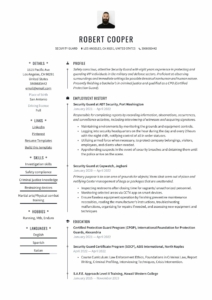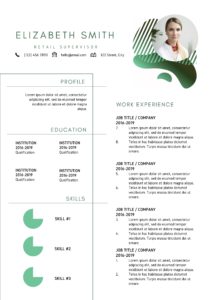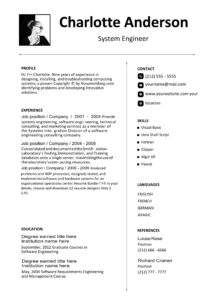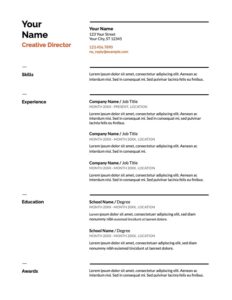
Interview day is going smooth sailing thus far. Your arrival time exactly 15 minutes ahead of schedule, with traffic being a breeze. You look like a million dollars and is getting on like a house on fire with HR as well as the Line Manager, breezing through their questions with grace and pizzazz. Even when put on the spot you continuously provide well thought out answers to difficult questions like: “Tell me about your weaknesses?” or “What do you regard as your most notable achievement to date”?
Halfway through the discussions surrounding company culture and team building events you can look forward to, the lady from HR pauses and then drops this bombshell:
“Who was the worst manager you have ever reported to?”
In a split second you go from Hero to Zero with a mind turning wholly blank and a throat that refuses to make a sound, pretty much replicating one of the scenes from Finding Nemo!
(A recollection from a real interview event)
TYPES OF INTERVIEW QUESTIONS
To prepare for the curveball questions like “Who was your worst manager to date?”, one needs to distinguish between the different categories of interview questions and the rationale behind them.
TYPE 1: Structured Interview Questions
• Pre-Formulated questions are direct and asked to gather information about technical ability, career history, salary and personality traits
TYPE 2: Unstructured Interview Questions
• These questions are generally informal and not pre-meditated. Discussions are open-ended with no right or wrong answer.
TYPE 3: Stress Interview Questions
• Pressure or stress questions are complex are asked, with the aim to place the candidate in an uncomfortable situation to ascertain how they handle themselves under pressure.
TYPE 4: Behavioral Interview Questions
• These questions are designed to probe the historical behavior of the individual using specific case scenarios or life events to predict how a person would act in a future similar type of situation.
TYPE 5: Problem Solving Interview Questions
• Analytical questions are presented to the candidate to determine cognitive reasoning and problem-solving ability.”
Interview questions can also reflect a combination of more than one type which is the case with “Who was your worst manager to date?”. This serves as an example of a Stress Question combined with a Behavioral slant. Another example of such a combination question could be: “What would you regard as your greatest weakness?”.
ALTERNATIVES TO A WORST MANAGER QUESTION
Interviewers may pose various versions of this question for instance:
- “Who was the most difficult manager you ever had to report to?”
- “Have you ever had issues working with a Manager in your division?”
- “Is there a Boss that you would not want to work with again?”
- “Have you ever had professional relationship issues with one of your previous managers?”
Before formulating an adequate response, one needs to delve into the nitty-gritty of what kind of information the interviewer is trying to extract from you.

WHO WAS YOUR WORST MANAGER QUESTION JUSTIFICATION
The interviewer could care less about WHO the manager was, he or she is interested in the reasons to why you would single the particular manager out as a difficult person to work with.
This line of questioning aims to establish whether you have an internal or external locus of control. In other words, either your morals and values influence your conduct or the environment and people around you depict your behavior. The latter is usually a tell-tale sign of someone who cannot take accountability for their actions.
Furthermore, this question tests whether you have issues with authority and whether you would find difficulty in taking direction or challenge protocols.
A final motive for this type of probing is to verify your sense of loyalty (or lack thereof). If a candidate bad-mouths their previous company or manager, it may point to underlying issues of narcissism and self-esteem problems, neither of which are conducive team dynamics and company culture
ACING IT OR FLAKING IT
Do not rant and rave about your ex-boss, but do not lie and deceive either.
Examples of how to best answer the question of who was your worst manager or boss could include:
• One of my jobs got off to a rocky start as the manager, and I had very different opinions about project execution, however, once we engaged in discussions and realized we were aiming for the same goal, we were able to compromise and complete many projects after that.
• I once had a boss who let her personal problems affect the way in which she handled us as her subordinates in a negative way and caused a tense atmosphere at the office. I decided the best course of action was to keep the lines of communication open and not fight fire with fire when she got upset or came to the office in a bad mood. This was challenging for me, but in the end, she appreciated my sympathy, and we parted on good terms.
• My supervisor at my second job tended to single me out when things went wrong, but yet refrained from giving me any credit when I did a good job. It bothered me as I am open to criticism but also appreciate the acknowledgment. I took her aside one day and asked her if she was unhappy with my progress. It turned out that she was in fact very satisfied with my development, but that she was just not used to giving appraisals because she has not been in a managerial role for long. She apologized, and we became good friends after that.

On the flip side of the coin, refrain from responding with negativity:
• I hated working with my first manager. She had no regard for policies and procedures and changed the timeframes of our deliverables on a continuous basis to the detriment of our team
• Oh yes, I have a great example to give you. My current boss is a real slacker who does nothing in the office but takes credit for other people’s work all the time. The entire team is currently looking for alternative opportunities.
• My worst manager to date was one of my colleagues who got promoted and then starting, acting very high, and mighty flaunting her title and pay raise at every chance she got. This behavior irritated me tremendously and made me lose my respect for her.
(Sounds a little far-fetched right? Believe me; these examples are recollections of answers candidates gave during interviews with me!)
PUTTING THEORY INTO PRACTICE
Preparing to answer THE ‘’’worst manager of your career” question may prove to be simpler than you would imagine, by following the STAR approach. Describe Situation or Task (S-T), the Action you took (A) and the Results achieved (R). In other words, provide a recollection of an event where there was conflict, indicate how you responded and what the outcome was.
Once you have formulated your answer, rehearse saying it in front of a mirror and check your body language and facial expressions. How you say something, makes a more significant impact than what you are saying.
Remember: Practice makes Perfect!!!




